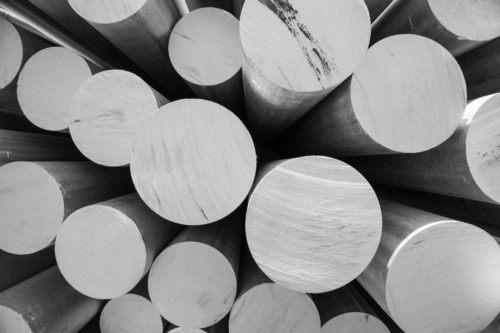Stahl Specialty Company for Beginners
Stahl Specialty Company for Beginners
Blog Article
Stahl Specialty Company Can Be Fun For Everyone
Table of ContentsThe Single Strategy To Use For Stahl Specialty CompanyThe 9-Minute Rule for Stahl Specialty CompanyThe Buzz on Stahl Specialty CompanyThe Ultimate Guide To Stahl Specialty CompanyUnknown Facts About Stahl Specialty Company
Chemical Contrast of Cast Light weight aluminum Alloys Silicon promotes castability by lowering the alloy's melting temperature and improving fluidity during spreading. Furthermore, silicon adds to the alloy's strength and put on resistance, making it valuable in applications where sturdiness is vital, such as vehicle components and engine elements.It additionally enhances the machinability of the alloy, making it easier to refine right into ended up items. By doing this, iron adds to the overall workability of aluminum alloys. Copper increases electric conductivity, making it useful in electric applications. It additionally improves deterioration resistance and includes in the alloy's general stamina.
Manganese adds to the toughness of light weight aluminum alloys and enhances workability. It is commonly used in wrought light weight aluminum products like sheets, extrusions, and profiles. The visibility of manganese help in the alloy's formability and resistance to breaking during fabrication processes. Magnesium is a lightweight aspect that gives strength and impact resistance to light weight aluminum alloys.
It enables the manufacturing of light-weight components with exceptional mechanical homes. Zinc boosts the castability of aluminum alloys and aids regulate the solidification process during casting. It boosts the alloy's toughness and firmness. It is usually found in applications where complex shapes and great information are required, such as ornamental castings and particular auto components.
Rumored Buzz on Stahl Specialty Company
Because aluminum-silicon alloys have excellent spreading homes, high gas properties, easy processes, and exceptional deterioration resistance, aluminum-silicon alloys are most typically used in the die-casting sector in the house and abroad. At the exact same time, aluminum-silicon alloys are also reasonably early and extensively recognized alloys created and used in die-casting. After constant research study and enhancement, most of the existing international mainstream aluminum-silicon alloys have been settled and are absolutely nothing even more than A356, A360, A380, ADC12, B390, and A413.
The primary thermal conductivity, tensile stamina, yield toughness, and elongation vary. Select suitable raw products according to the performance of the target item generated. Among the above alloys, A356 has the highest possible thermal conductivity, and A380 and ADC12 have the least expensive. The tensile limitation is the opposite. A360 has the very best yield stamina and the highest possible elongation price.

Little Known Facts About Stahl Specialty Company.
In accuracy casting, 6063 is well-suited for applications where detailed geometries and top quality surface area finishes are vital. Examples consist of telecommunication units, where the alloy's remarkable formability permits streamlined and cosmetically pleasing layouts while maintaining structural integrity. In the Lighting Solutions industry, precision-cast 6063 elements create stylish and effective lights fixtures that need detailed shapes and good thermal performance.
(https://www.interweave.com/plus_old/members/stahlspecialc/profile/)
The A360 shows exceptional prolongation, making it perfect for complicated and thin-walled parts. In precision spreading applications, A360 is well-suited for sectors such as Consumer Electronic Devices, Telecommunication, and Power Tools.

In accuracy casting, light weight aluminum 413 beams in the Customer Electronics and Power Devices industries. This alloy's premium corrosion resistance makes it an outstanding selection for outdoor applications, making certain lasting, resilient products in the pointed out sectors.
The Only Guide for Stahl Specialty Company
As soon as you have decided that the aluminum die casting process is appropriate for your project, a critical following action is deciding on the most ideal alloy. The aluminum alloy you pick will substantially affect both the casting process and the residential properties of the end product. As a result of this, you should make your choice carefully and take an informed approach.
Figuring out the most suitable light weight aluminum alloy for your application will indicate weighing a wide variety of characteristics. The initial classification addresses alloy qualities that influence the manufacturing procedure.
The alloy you choose for die spreading straight impacts numerous aspects of the spreading procedure, like exactly how easy the alloy is to deal with and if it is prone to casting problems. Warm splitting, also understood as solidification cracking, is a typical die spreading defect for aluminum alloys that can cause inner or surface-level splits or Go Here splits.
What Does Stahl Specialty Company Do?
Particular aluminum alloys are a lot more susceptible to hot splitting than others, and your option should consider this. Another usual defect found in the die casting of aluminum is pass away soldering, which is when the cast stays with the die walls and makes ejection challenging. It can harm both the actors and the die, so you ought to try to find alloys with high anti-soldering buildings.
Deterioration resistance, which is currently a notable attribute of aluminum, can differ substantially from alloy to alloy and is a vital characteristic to consider relying on the ecological problems your item will certainly be subjected to. Use resistance is one more property generally sought in light weight aluminum products and can distinguish some alloys.
Report this page